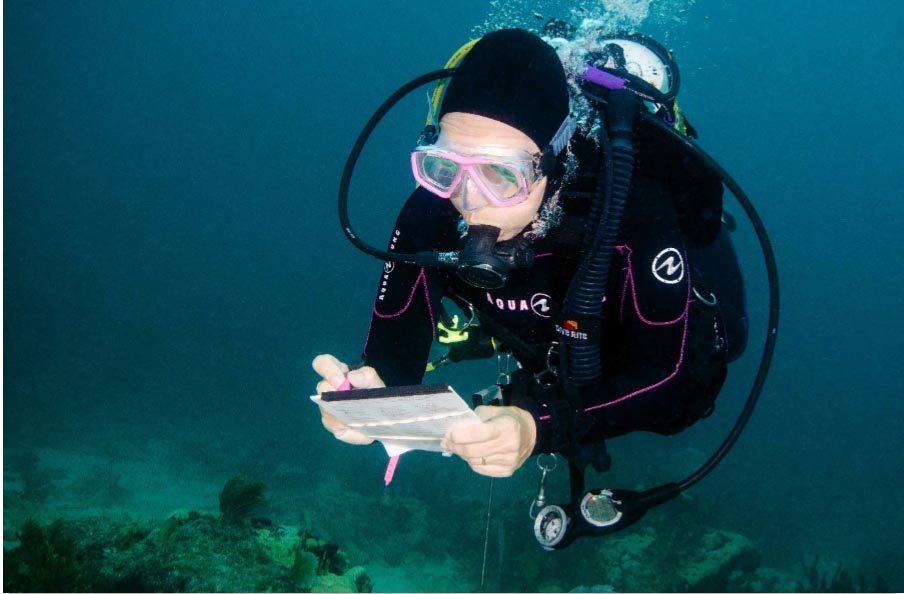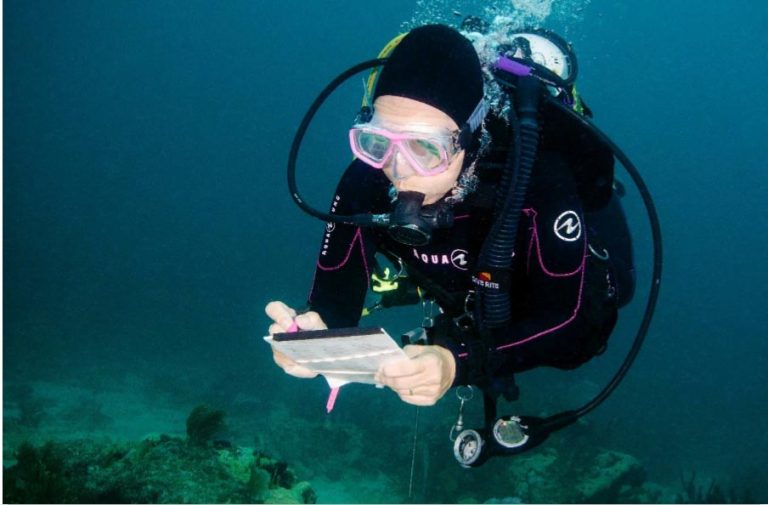Scuba-diving “citizen scientists” have helped to produce a new map of Caribbean fish that shows biodiversity to be higher in warmer waters.

However, the very hottest sites were revealed to host fewer species than those with intermediate temperatures – something the researchers say has not shown up in previous studies.
These results will be of concern given the fast-rising water temperatures in the region, say scientists from the Marine Biological Association (MBA) of the UK and the Centre for Macroecology, Evolution & Climate in Denmark, who put together the report.
Based on data collected by thousands of divers who have been working for more than 25 years within the Reef Environmental Education Foundation (REEF)’s fish survey project, the project has enabled the researchers to compare hundreds of coral reefs and other coastal sites.
High-diversity areas included the Dutch Antilles (Bonaire, Curacao and Aruba) and the Florida Keys, whereas relatively few species were found in areas such as Bermuda, the Gulf of Mexico and northern Florida.
The scientists examined potential environmental factors such as temperature, salinity and depth, as well as human-based factors such as population density. They say that analysis proved that the number of fish species recorded at a site could be predicted by the warmth of the water there and, to a lesser extent, by the depth.
“Rather than being a simple relationship, whereby warmer waters lead to more fish species, the relationship seen in the REEF data was ‘hump-shaped’,” said senior author Dr Ben Holt of the MBA, which is based in Plymouth.
“Warmer sites tend to have more species only up to an optimal temperature of around 27C, and then the very hottest sites are less diverse.” This may be partly driven by fewer species being adapted to the warmest temperatures.
“These result do not necessarily directly transfer to changes over time at any particular site, for example as seawater temperatures change in the future,” said Dr Holt. “This is an important area for further research, given the importance of these habitats within the Caribbean and around the world.”
The study is published in the Journal of Biogeography. Find out more about REEF here
Divernet – The Biggest Online Resource for Scuba Divers
09-Jun-17

